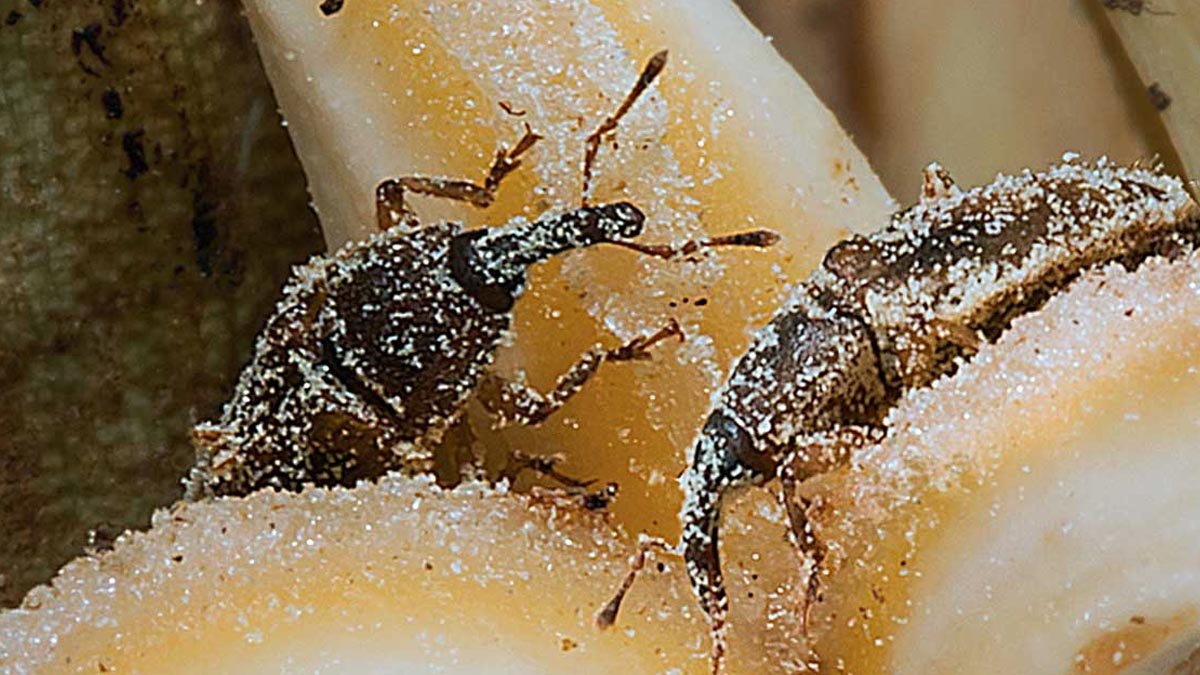PALMOILMAGAZINE, BOGOR – Indonesia’s palm oil industry generates an estimated IDR 440 trillion annually, making it one of the pillars of the national economy. Yet behind this staggering figure lies an often-overlooked contributor: pollinating insects.
“Without pollinating insects, oil palm yields could drop by 70–80 percent,” said Prof. Purnama Hidayat, a senior professor at IPB University’s Faculty of Agriculture, during a press conference ahead of his inaugural scientific oration in May 2025.
He emphasized that of the total industry value, around IDR 300 trillion could vanish if pollinators were absent from palm plantations. “Indonesia is fortunate to have ecological conditions that naturally support the presence of pollinators,” he added, as quoted by Palmoilmagazine.com from IPB University on Sunday (Sept 7, 2025).
Also Read: BPDP Prepares 114 Students for the Future of Indonesia’s Palm Oil Industry
Malaysia, he noted, once had to import the insect Elaeidobius kamerunicus from Africa to ensure successful pollination, since oil palm itself originated from the continent. “It shows that the presence of pollinators cannot be underestimated,” he explained. Without them, pollination would need to be carried out manually—an almost impossible task considering millions of hectares of oil palm spread across Indonesia.
Beyond pollination, insects are also seen as a potential alternative protein source. In Thailand, Vietnam, and China, insect consumption is already part of culinary traditions. “The Food and Agriculture Organization (FAO) even highlights insects as one of the cheapest and most energy-efficient sources of protein,” Prof. Purnama said.
While Indonesians may still consider eating insects unusual, he believes this could become a new habit within the next 20–30 years.
In sustainable agriculture, insects also play a crucial role as natural pest controllers. Prof. Purnama cited the example of a sugar company in Lampung that successfully reduced pesticide use by up to 80 percent by relying on predator insects. “This demonstrates that insects are vital not only for oil palm but also for maintaining agricultural ecosystem balance more broadly,” he noted.
Concluding his remarks, Prof. Purnama called on academia, industry, and the public to recognize and cultivate the potential of insects. “They are the unsung workers of our ecosystems. Without them, we risk losing not only palm oil yields but also the foundation of future food sustainability,” he stressed. (P2)
